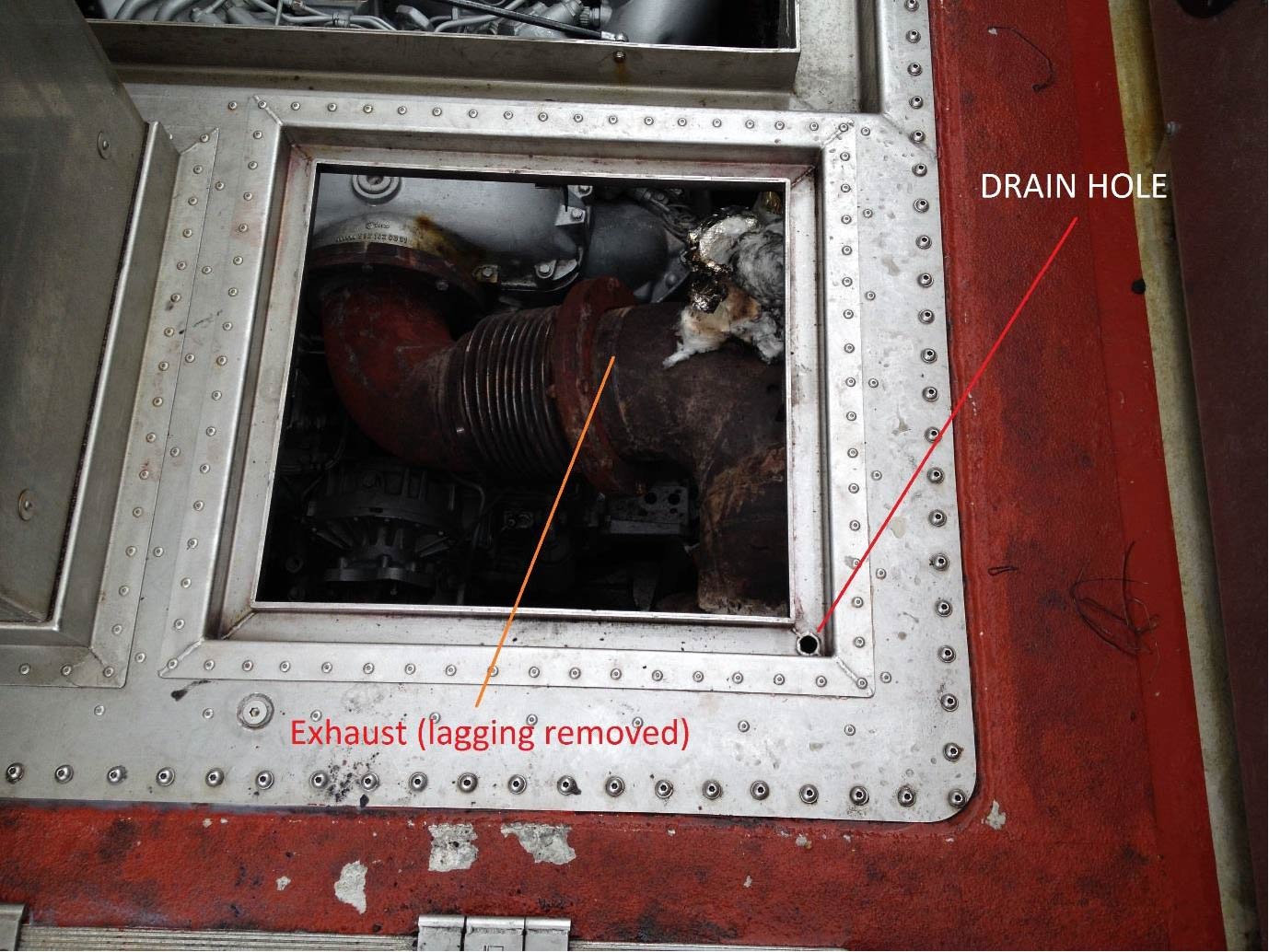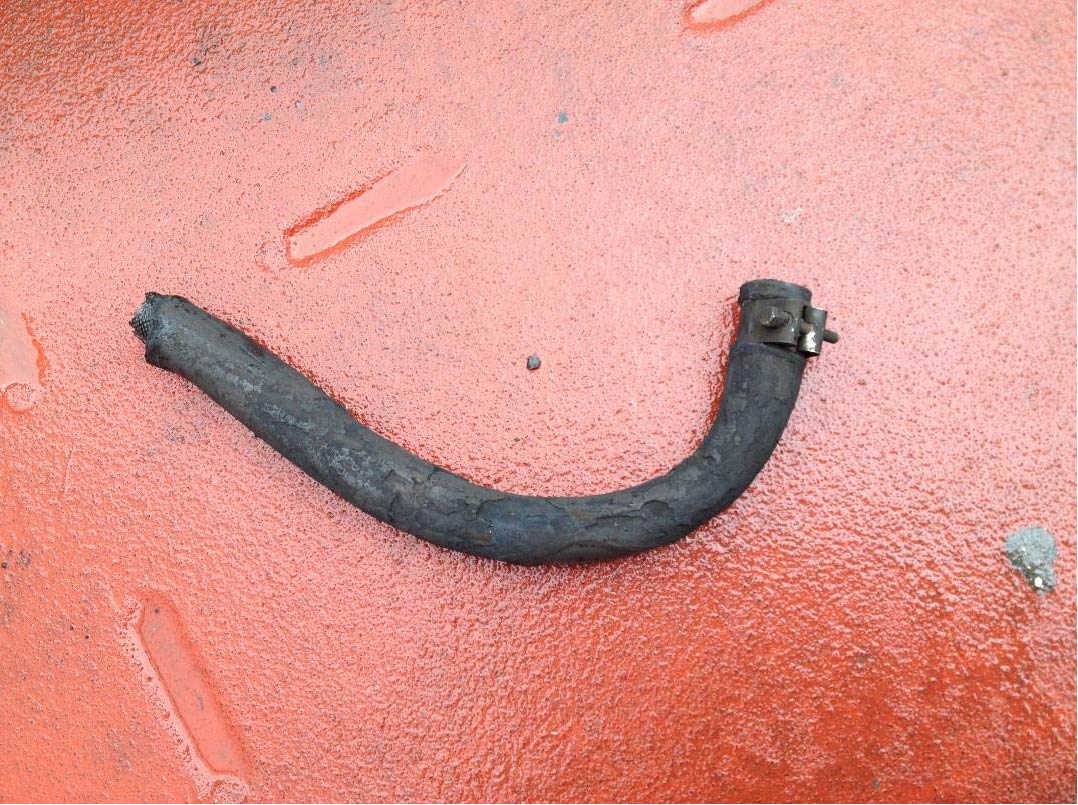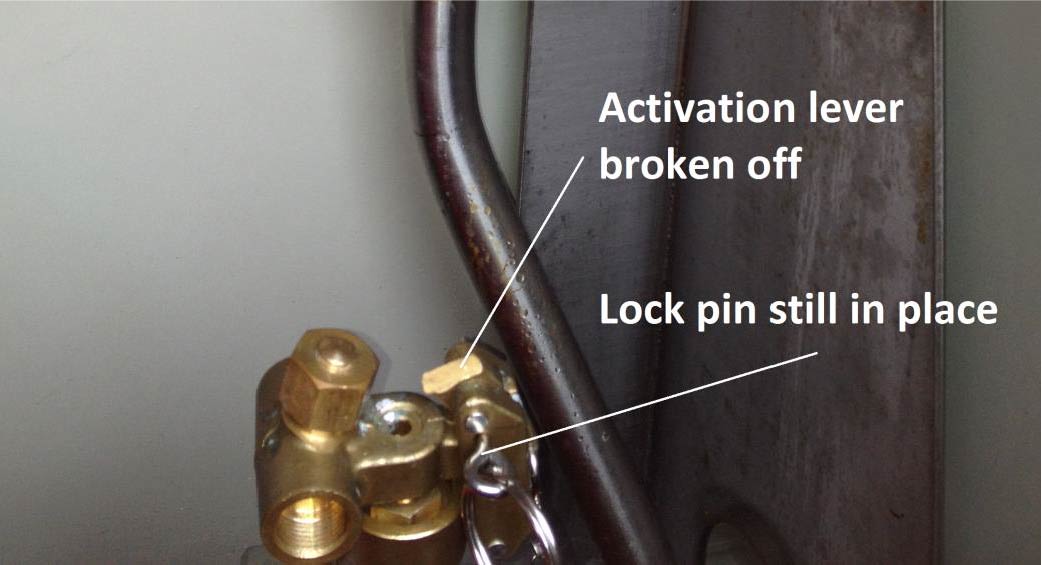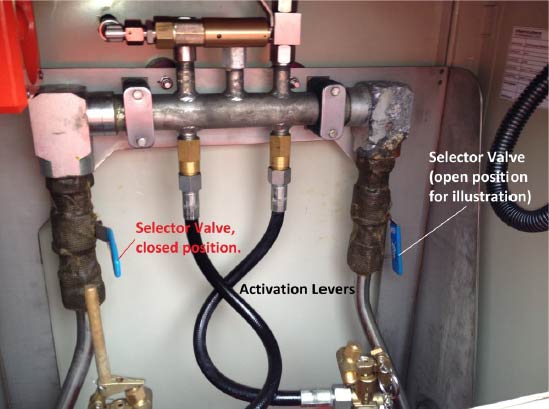Fire in engine space on crew transfer vessel (CTV)
An incident has been bought to IMCA’s attention in which there was a small fire in the starboard engine space on a crew transfer vessel used in the offshore wind farm sector. The incident occurred when on passage to an offshore wind farm. Shortly after leaving port, the fire alarm was activated in the starboard engine. Dark smoke was observed coming from the drain hole in the after inspection hatch of the starboard engine. On the CCTV into the engine space there was no indication of flames.
The starboard engine was shut down and full fire procedures were carried out. The COâ‚‚ system was also used, however on inspection after the incident it was found that the system had not deployed. Shore authorities were alerted and the vessel returned to port on one engine. All staff were safely landed ashore and the fire confirmed to be extinguished.
Investigation of the fire revealed the following:
- Normal checks on the engines and inspection of the engine and jet spaces had been carried out before the voyage, and all was found to be in order;
- The immediate cause of the fire was a rubber drain hose from a hatch combing catching fire as it was in contact with the exhaust system;
- Although the drain pipe was heat resistant and the main engine exhaust was covered in thermal insulation, the drain pipe was badly positioned, crossing over the exhaust system;
- The flames from the burning pipe were extinguished by oxygen starvation as a result of the shutdown of the engine fans and ventilators. The COâ‚‚ smothering system was not actually deployed.
The following actions were taken with regard to the fire:
- Drain pipe on both engines replaced with a suitable thermally protected pipe which was run clear of any possible exposure to damage from the exhaust system;
- A general focus on pipe inspections was produced and circulated;
- Fire drills and specific vessel training to be updated to reflect lessons learnt from this incident.
Investigation of why the COâ‚‚ system did not deploy revealed the following:
- The valve to the engine space had not been opened;
- The pin had not been removed from the valve head;
- A brass lever had been forced in the wrong direction causing it to shear;
- The instructions for the activation and effective use of the COâ‚‚ system were not adequate to purpose;
- They were located on the external surface of the drop down access door;
- They are not readily visible to crew operating the system;
- They did not highlight the need to remove the safety pin on the activation lever of the cylinder; The following actions were taken with regard to the failure to deploy the COâ‚‚ smothering system:
- Better and more detailed operating instructions issued to vessels with similar COâ‚‚ smothering systems – including pictorial instructions for use;
- Ensured that all crew members were fully conversant with the fixed fire fighting system fitted to the vessel and how to operate that fire fighting system.




Members may wish to refer to the following similar incidents (key words: engine, space, fire):
Safety Event
Published: 30 June 2014
Download: IMCA SF 10/14
IMCA Safety Flashes
Submit a Report
IMCA Safety Flashes summarise key safety matters and incidents, allowing lessons to be more easily learnt for the benefit of all. The effectiveness of the IMCA Safety Flash system depends on Members sharing information and so avoiding repeat incidents. Please consider adding safetyreports@imca-int.com to your internal distribution list for safety alerts or manually submitting information on incidents you consider may be relevant. All information is anonymised or sanitised, as appropriate.
IMCA’s store terms and conditions (https://www.imca-int.com/legal-notices/terms/) apply to all downloads from IMCA’s website, including this document.
IMCA makes every effort to ensure the accuracy and reliability of the data contained in the documents it publishes, but IMCA shall not be liable for any guidance and/or recommendation and/or statement herein contained. The information contained in this document does not fulfil or replace any individual’s or Member's legal, regulatory or other duties or obligations in respect of their operations. Individuals and Members remain solely responsible for the safe, lawful and proper conduct of their operations.
